How the 'better burger' is taking over the world
- Published
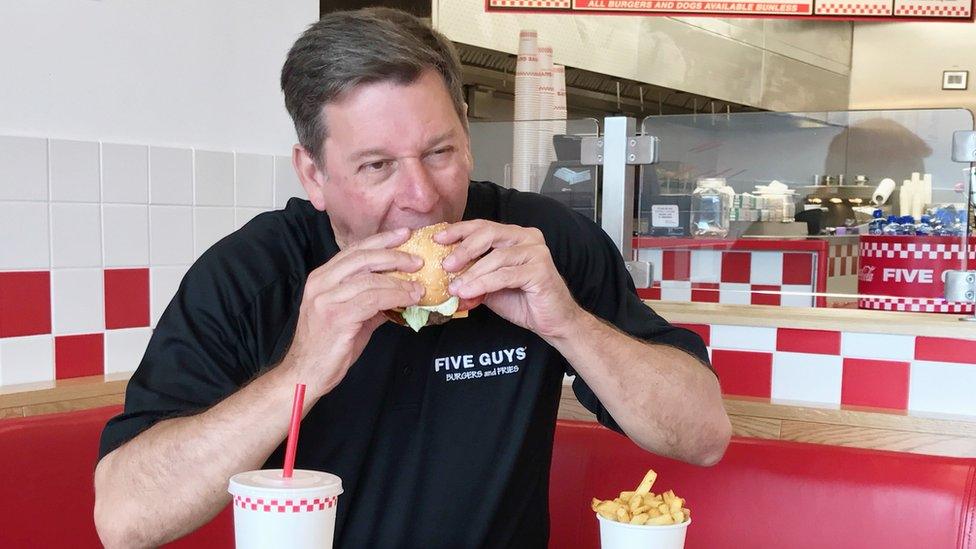
Five Guys' Paul Reynish says burgers should be part of a balanced diet, but he eats one a day when he's working in stores
Burgers used to be fast and cheap - the epitome of fast food. But now a different type of patty exported from the US is rapidly expanding across the globe. What's driving the rise of the so called "better burger"?
"What's fascinating", observes Paul Reynish, chief executive of US burger chain Five Guys International, is "the complete fundamental change" that has taken place with people prepared to pay more and wait longer for a more upmarket burger.
We're speaking via phone whilst he's in the firm's Belfast restaurant, doing what he calls "product calibration" - where the firm tries to match US ingredients not available or allowed under EU laws with local alternatives.
Making sure its overseas burgers taste the same as those in the US is important, he says.
"Unless you have consistency there is no brand... you've got to have some confidence that the burger you have in Dubai and Paris is the same as the one you have in California and Miami," he says.
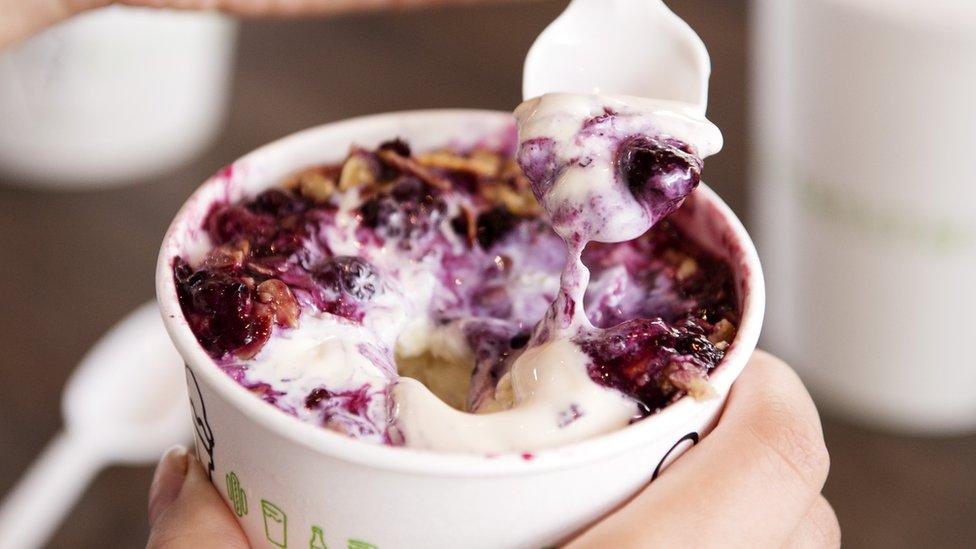
Shake Shack has adapted its offering to local tastes, offering a red bean shake in Korea and veal bacon in countries where pork isn't eaten
This is still a fairly new experience for the firm, which opened its first restaurant outside the US just four years ago.
The family controlled firm, started by husband and wife team Jerry and Janie Murrell and their five sons in 1986, is one of the biggest operators in the so called "better burger" market.
This is where the cheap fast food staple morphs into the world of cooked-to-order, brioche buns, grass fed cattle and triple cooked chips.
A level up from the fast food chains such as McDonald's and Burger King and two to three times more expensive, these types of burger bars still tend to be cheaper and more relaxed than a restaurant meal.
In a world where prices are rising faster than pay, it's an affordable indulgence. Yes it's a treat but not one that'll put too much of a dent in your bank balance. So called millennials, the generation that came of age after the 2008 financial crisis, are their core customers.
The trend of diners wanting to know where their food comes from, how it was prepared, and the "story" behind it has also helped drive the better burger's rapid expansion.
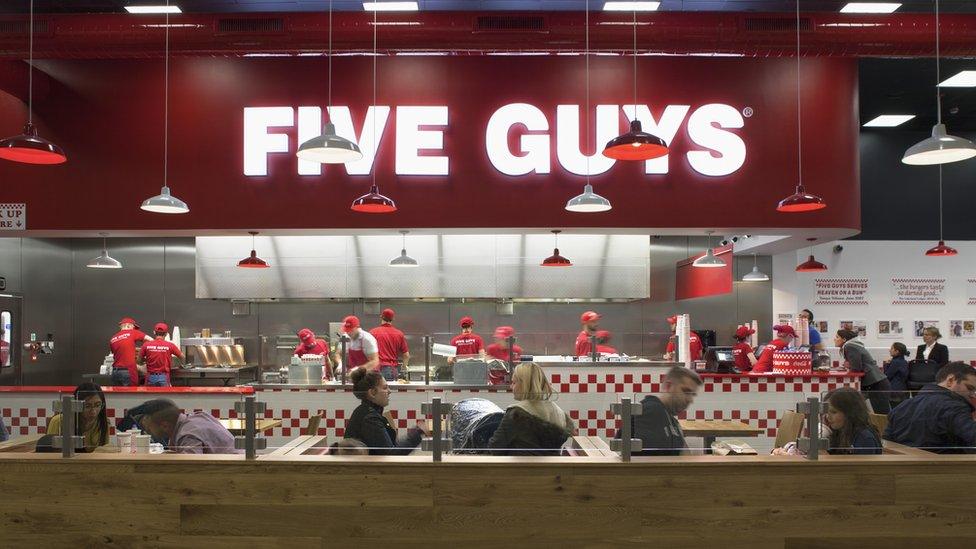
Currently just 150 of Five Guys' 1,450 restaurants are outside the US
Five Guys, for example, boasts of 120-day grain-finished beef from family-owned farms in Ireland. Less than 1% of all UK beef qualifies, it says.
"Burgers, fries, shakes and Coke it's a pretty simple model," says Mr Reynish.
Nonetheless, it's a profitable market, worth some £3.3bn in the UK last year, according to market research firm Mintel.
The US and the UK aren't the only ones with an appetite for a more upmarket burger. Five Guys is currently in nine countries, but expects to expand to 28 over the next five years.
It's not to everyone's taste.
"Overpriced, overrated and over here," is one disgruntled Trip Advisor reviewer's verdict on the explosion of higher end US burger places in the UK.
Yet Mr Reynish says it was demands from visitors to the US desperate to experience the burgers in their home countries that drove their decision to expand.
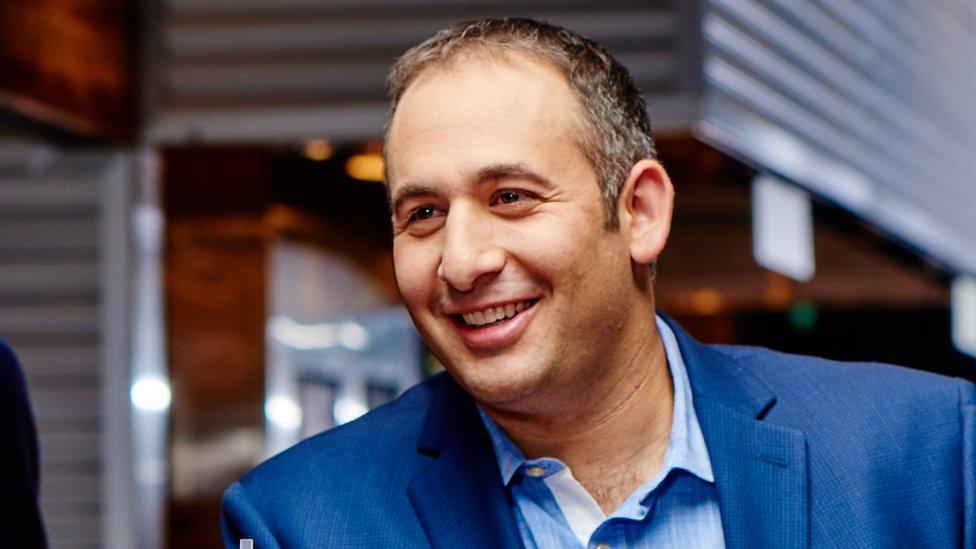
Shake Shack's Michael Kark says the firm's rapid expansion wasn't planned
In contrast to Five Guys, US rival Shake Shack wasn't even a chain when it decided to take its concept overseas.
"Quite honestly it's serendipitous we're even talking now...Shake Shack was totally an accident," laughs Michael Kark.
As vice president of Shake Shack's licensed business, he is the man in charge of the firm's international expansion.
The firm's taken an unusual approach to expansion, opening restaurants overseas before it was an established presence in its home country.
Less than a decade ago the firm was a temporary stand in a New York park with queues so long that one fan set up a webcam so people could see at a glance just how long they'd have to wait.
It was after the firm, founded by restaurateur Danny Meyer, opened its second restaurant, that Kuwaiti firm Alshaya approached them about opening a franchise.
"Kuwait isn't top of most brands' lists", admits Mr Kark. But for the firm which was then "really really tiny", it turned out to be a massive opportunity.
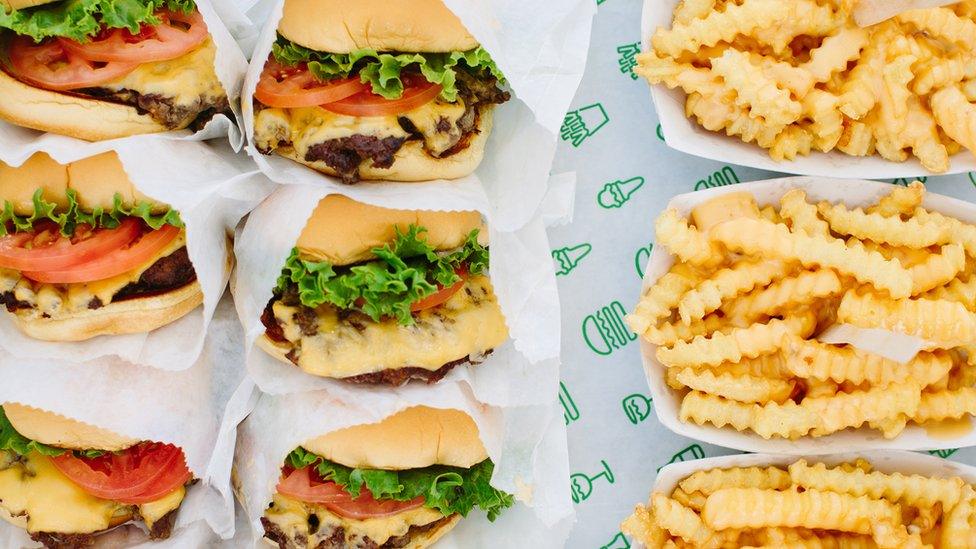
Shake Shack now has 133 locations globally, with 83 of these in the US
They agreed a licensing deal whereby Shake Shack took a one-off fee plus a percentage of sales. It's a model the firm has stuck to for all its overseas restaurants.
The experience helped its success: "As a company we were really great at creating one off concepts but we had no experience about duplication," says Mr Kark.
But why on earth did Alshaya choose Shake Shack?
Mr Kark says when he asked him, the group's founder said it was the really long queues.
"We'd gained this enormous cult following and that's how he found us."
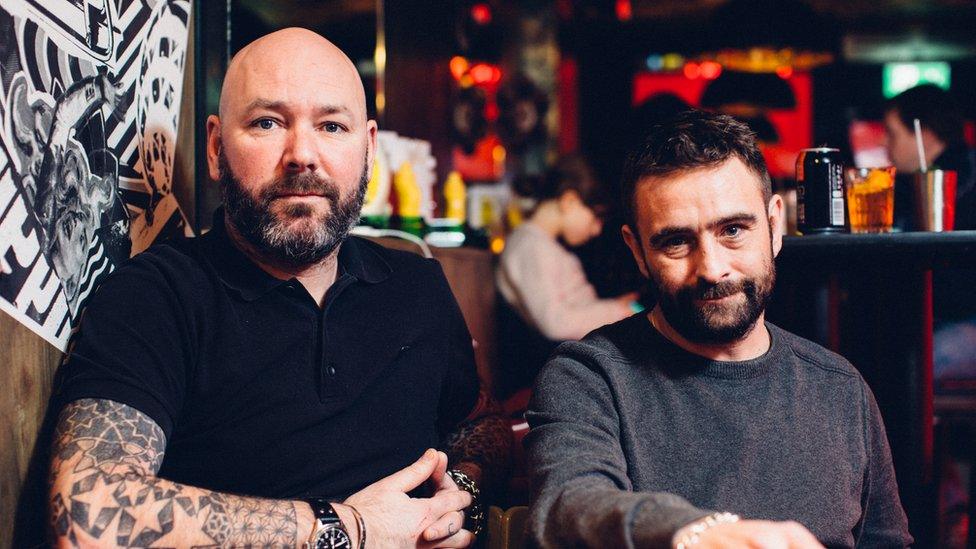
Scott Collins (left) and Yianni Papoutsis say they deliberately make their restaurants hard to find
Burger bars often inspire a cult-like following.
UK burger firm Meat Liquor began as irregular gatherings called #Meateasy advertised on Twitter. At that stage there was no restaurant, website or permanent venue, but just a hashtag and a burger van dubbed the "meatwagon".
Nonetheless, people would trek to south London and queue for two hours just to get a taste of their particular take on classic American diner food. It wasn't just the food, but the atmosphere that lured customers. With violently loud music and dark graffiti-adorned walls, the venues are more like a nightclub than a restaurant.
CEO Secrets: Burger boss says reach out to your heroes
The first meatwagon was vandalised and the second was stolen. Founder Yianni Papoutsis, who was juggling the ad hoc stall with his job as a technician for the English National Ballet, eventually teamed up with pub owner Scott Collins to find a restaurant in 2010.
Now the pair have 13 sites and expect to make £17m in sales this year. "It's more like luck than judgement," says Mr Collins.

More stories from the BBC's global trade series looking at trade from an international perspective:
What it takes to get Beyonce on a world tour
The country losing out in the breakfast juice battle
Why a $1.6bn car plant has been left to decay
'You don't have to be a squillionaire to buy art'

But one thing hasn't changed. They still make customers seek them out. Their restaurants are often in sites other restaurants reject, tucked away in alleyways, or unusual places such as an ice rink or a box park made of shipping containers.
"Part of our USP is that we're hidden away," says Scott Collins. But for people fed up with queuing it now lets customers reserve tables.
He says there's really nothing new about the gourmet burger craze which has long been a pub menu staple.
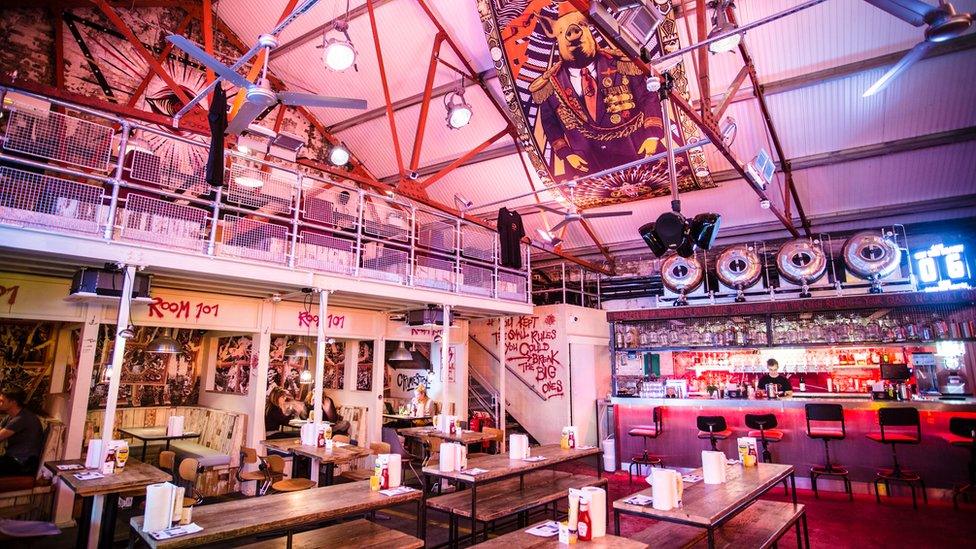
Meat Liquor's restaurants have a nightclub-like atmosphere
It's this very popularity which could eventually slow the sector's growing success. Mintel says the fact that there is so much competition, often in the exact same locations, means it's becoming harder for firms to attract customers.
Five Guys Mr Reynish isn't worried.
"We're just not seeing any reduction in demand or frequency. Our annual sales per store are going up not down," he says.